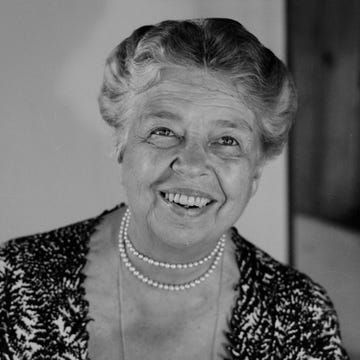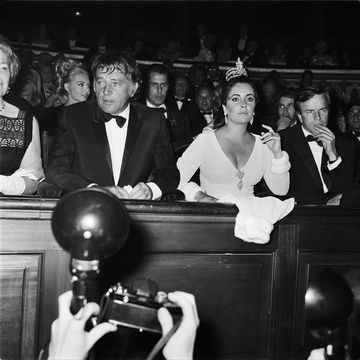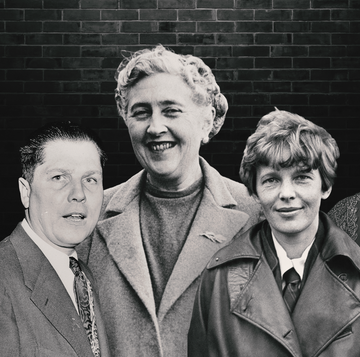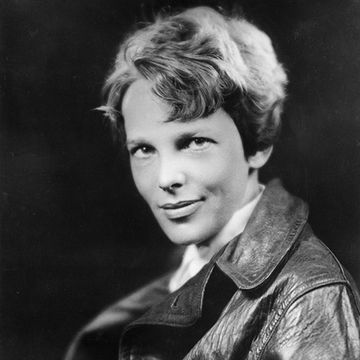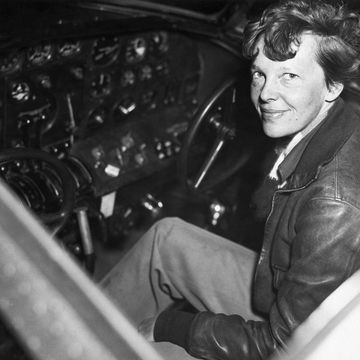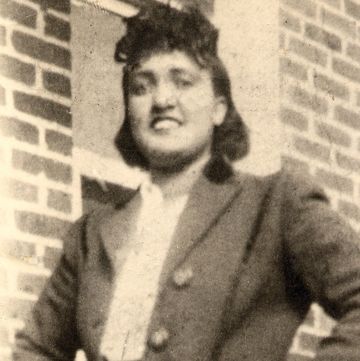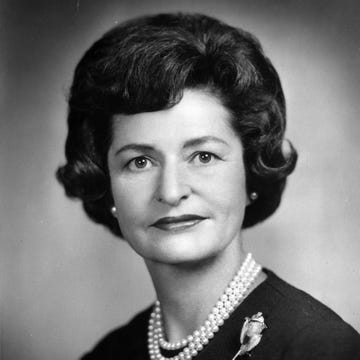(1837-1876)
Who Was Wild Bill Hickok?
Wild Bill Hickok is remembered for his services in Kansas as sheriff of Hays City and marshal of Abilene, where his ironhanded rule helped to tame two of the most lawless towns on the frontier. He is also remembered for the cards he was holding when he was shot dead – a pair of black aces and a pair of black eights – since known as the dead man's hand.
Early Years
A legend during his life and considered one of the American west's premier gunfighters, James Butler ("Wild Bill") Hickok was born May 27, 1837, in Troy Grove, Illinois. The son of William Alonzo and Polly Butler Hickok, he was by all accounts a master marksman from an early age.
Hickok moved west in 1855 to farm and joined General James Lane's Free State (antislavery) forces in Kansas. He was later elected constable of Monticello Township in Johnson County, Kansas.
For the next several years, Hickok worked as a stagecoach driver. During the Civil War he found employment as a teamster and spy for the Union Army.
Birth of a Legend
Wild Bill Hickok's iconic status is rooted in a shootout in July 1861 in what came to be known as the McCanles Massacre in Rock Creek, Nebraska. The incident began when David McCanles, his brother William and several farmhands came to the station demanding payment for a property that had been bought from him. Hickok, just a stable-hand at the time, killed the three men, despite being severely injured.
The story quickly became newspaper and magazine fodder. Perhaps most famously, Harper's New Monthly Magazine printed an account of the story in 1867, claiming Hickok had killed 10 men. Overall, it was reported that Hickok had killed over 100 men during his lifetime.
During the Civil War, Wild Bill Hickok served in the Union Army as a civilian scout and later a provost marshal. Though no solid record exists, he is believed to have served as a Union spy in the Confederate Army before his discharge in 1865.
In July, 1865, in Springfield, Missouri's town square, Hickok killed Davis Tutt, an old friend who – after personal grudges escalated – became an enemy. The two men faced each other sideways for a duel. Tutt reached for his pistol but Hickok was the first to draw his weapon, and shot Tutt instantly, from approximately 75 yards.
Wild Bill Hickok’s legend only grew further when other stories about his fighting prowess surfaced. One story claimed he killed a bear with his bare hands and a bowie knife. The Harper's piece also told the story of how Hickok had pointed to a letter "O" that was "no bigger than a man's heart." Standing some 50 yards away from his subject, Hickok "without sighting his pistol and with his eye" rang off six shots, each of them hitting the direct center of the letter.
Final Years
Following his Civil War service, Wild Bill Hickok moved to Kansas where he was appointed sheriff in Hays City and marshal of Abilene. Both towns had become outposts for lawless men before Hickok arrived and turned things around. In an 1871 account that changed his life, Hickok was reportedly involved in a shootout with saloon owner Phil Coe. In the melee, Hickok caught a glimpse of someone moving towards him and responded with two shots killing his deputy Mike Williams. The event haunted Hickok for the rest of his life. After in inquest where other incidents of Hickok’s brand of “frontier justice” was revealed, he was relieved of his duties.
Hickok never fought in another gun battle. During the next several years he appeared in Buffalo Bill Cody’s Wild West Show, living off his fame as the consummate gunfighter.
In 1876, Wild Bill Hickok was suffering from glaucoma. Relegated to making a living through other means than law enforcement, he traveled from one town to another as a gambler. Several times he was arrested for vagrancy. On March 5, 1876, he married Agnes Thatcher Lake, an owner of a circus in Cheyenne, Wyoming territory. He left his wife a few months later to seek his fortune in the goldfields of South Dakota. It was here that he supposedly became romantically linked to Martha Jane Canary, also known as "Calamity Jane," but most historians discount any such amorous relationship between the two.
Trial and Death
While in Deadwood, South Dakota, Wild Bill Hickok became a regular poker player at Nuttal & Mann's Saloon. On the afternoon of August 2, 1876, he was playing cards with his back to the door, something he seldom did. A young drifter named Jack McCall walked in and approached Hickok from behind. Not wasting a second, he quietly drew his revolver and shot Hickok in the back of the head, instantly killing him. Even in death Hickok's legend grew. The cards he was holding at the time – a pair of black aces and a pair of black eights – became known as "the dead man's hand."
McCall was brought to trial the next day. He was found not guilty by a “miners’ court” after telling judges that Hickok killed his brother, though later accounts showed McCall had no brothers. After his release, McCall had lingered in Deadwood for a short while before heading to Wyoming. Less than a month after Hickok's death, the trial was found to have no legal status because Deadwood was located in Indian Territory - McCall's acquittal was deemed invalid. Still, feeling he had escaped punishment, McCall began to brag to anyone that would listen that he had killed Wild Bill Hickok. But the U.S. marshals were on his trail and McCall was arrested on August 29, 1876 in Laramie, where he was held before he was extradited to Yankton, South Dakota. The trial began on December 4 and it only took two days for the jury to find McCall guilty. He was sentenced to death on January 3, 1877 and on March 1, 1877 he was executed by hanging.
QUICK FACTS
- Name: Wild Bill Hickok
- Birth Year: 1837
- Birth date: May 27, 1837
- Birth State: Illinois
- Birth City: Troy Grove
- Birth Country: United States
- Gender: Male
- Best Known For: Wild Bill Hickok was an American frontiersman, army scout and lawman who helped bring order to the frontier West.
- Industries
- Crime and Terrorism
- U.S. Politics
- Astrological Sign: Gemini
- Cultural Associations
- Old West (U.S.)
- Death Year: 1876
- Death date: August 2, 1876
- Death State: South Dakota
- Death City: Deadwood
- Death Country: United States
Fact Check
We strive for accuracy and fairness.If you see something that doesn't look right,contact us!
CITATION INFORMATION
- Article Title: Wild Bill Hickok Biography
- Author: Biography.com Editors
- Website Name: The Biography.com website
- Url: https://www.biography.com/personality/wild-bill-hickok
- Access Date:
- Publisher: A&E; Television Networks
- Last Updated: July 28, 2020
- Original Published Date: April 2, 2014



